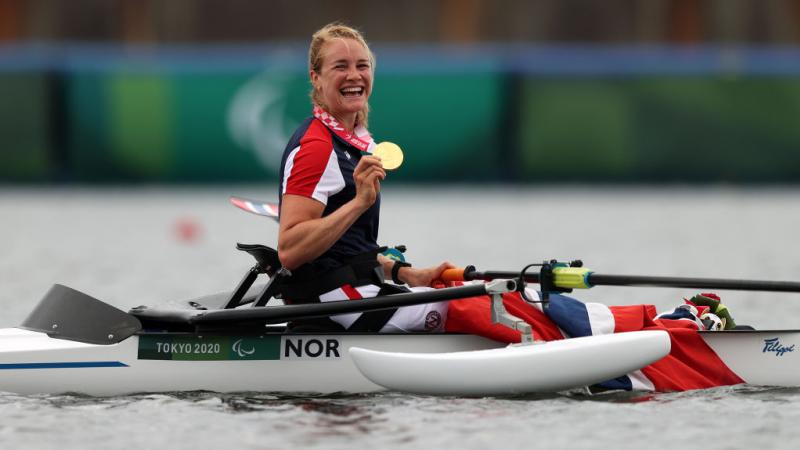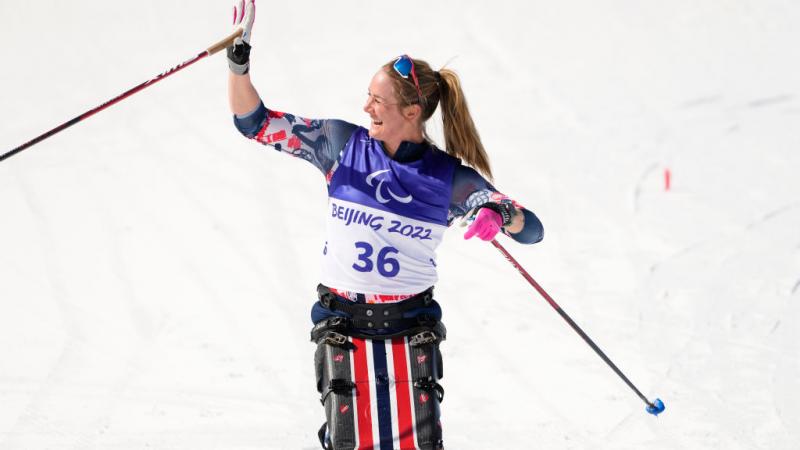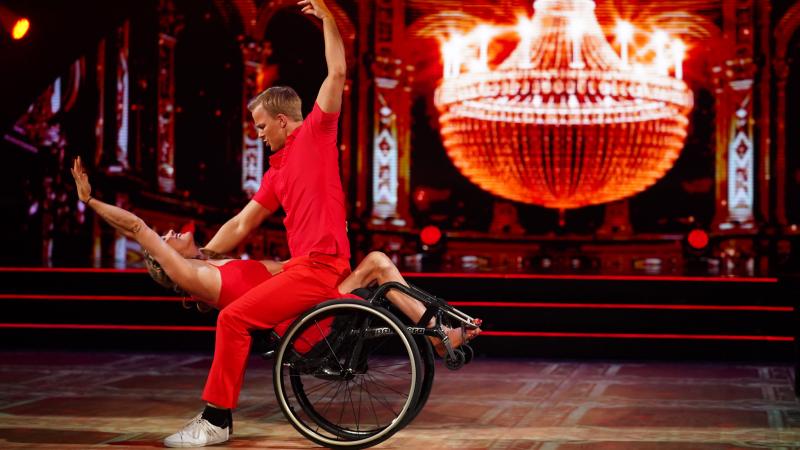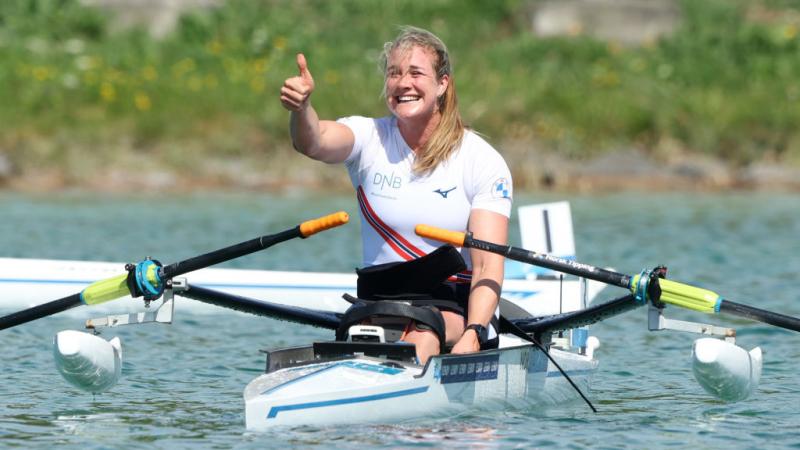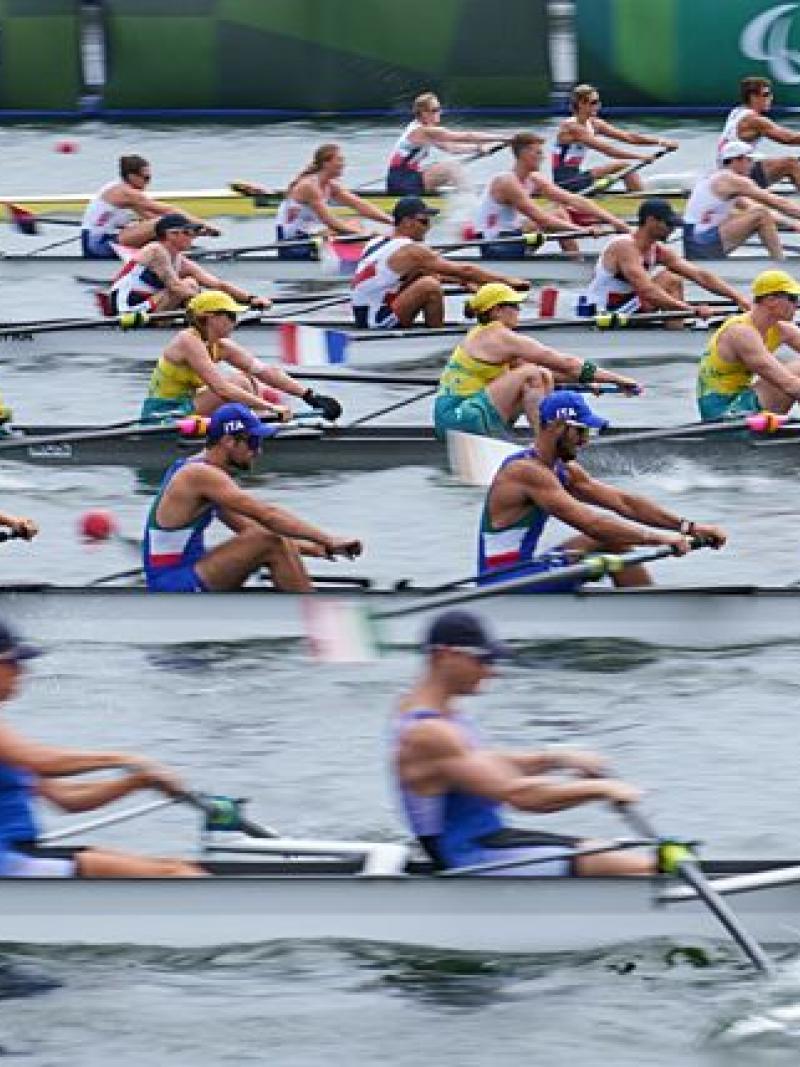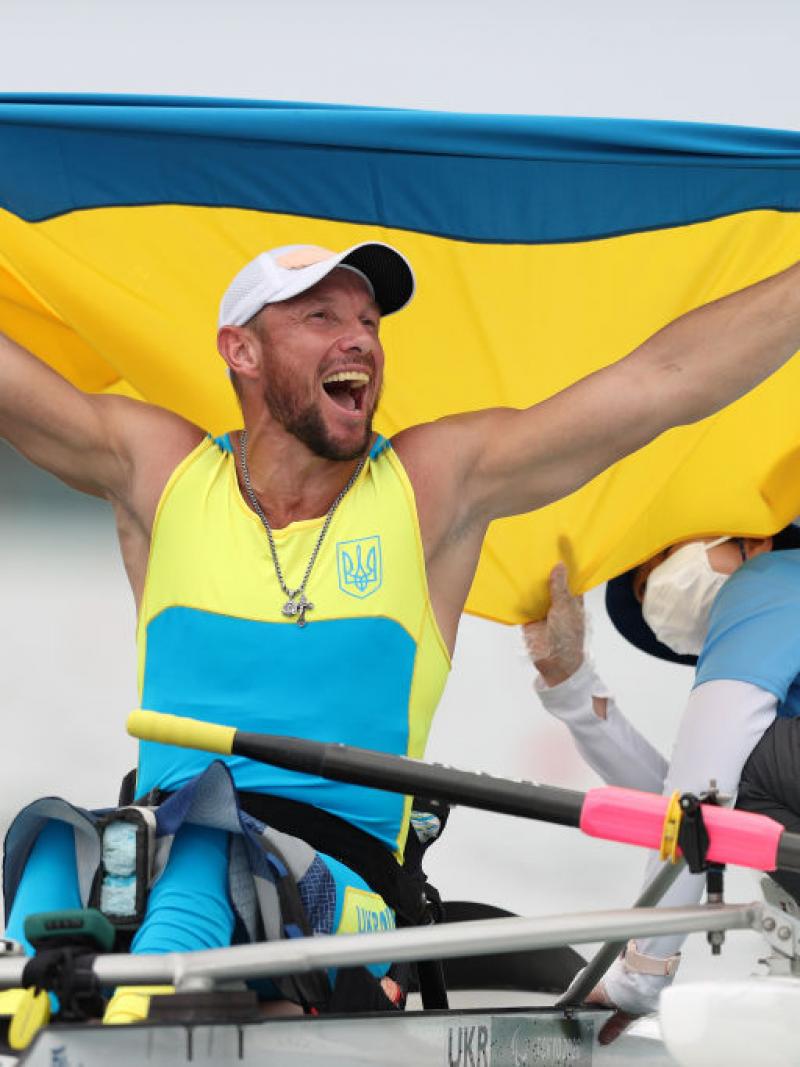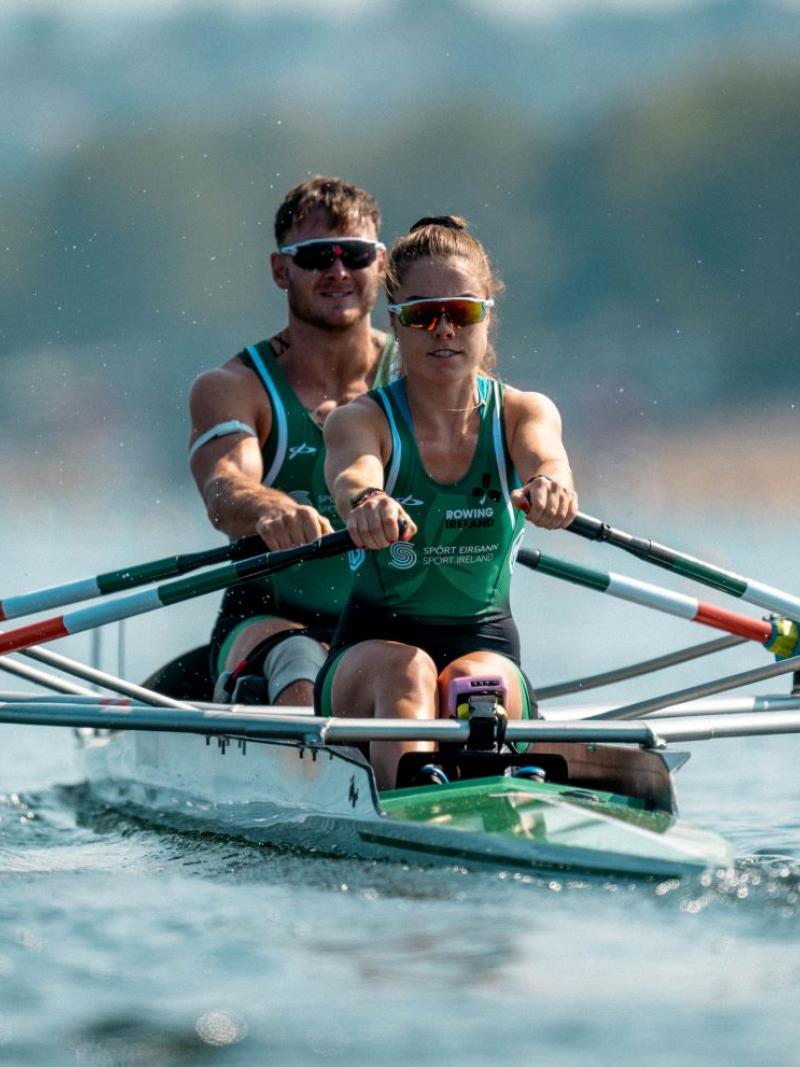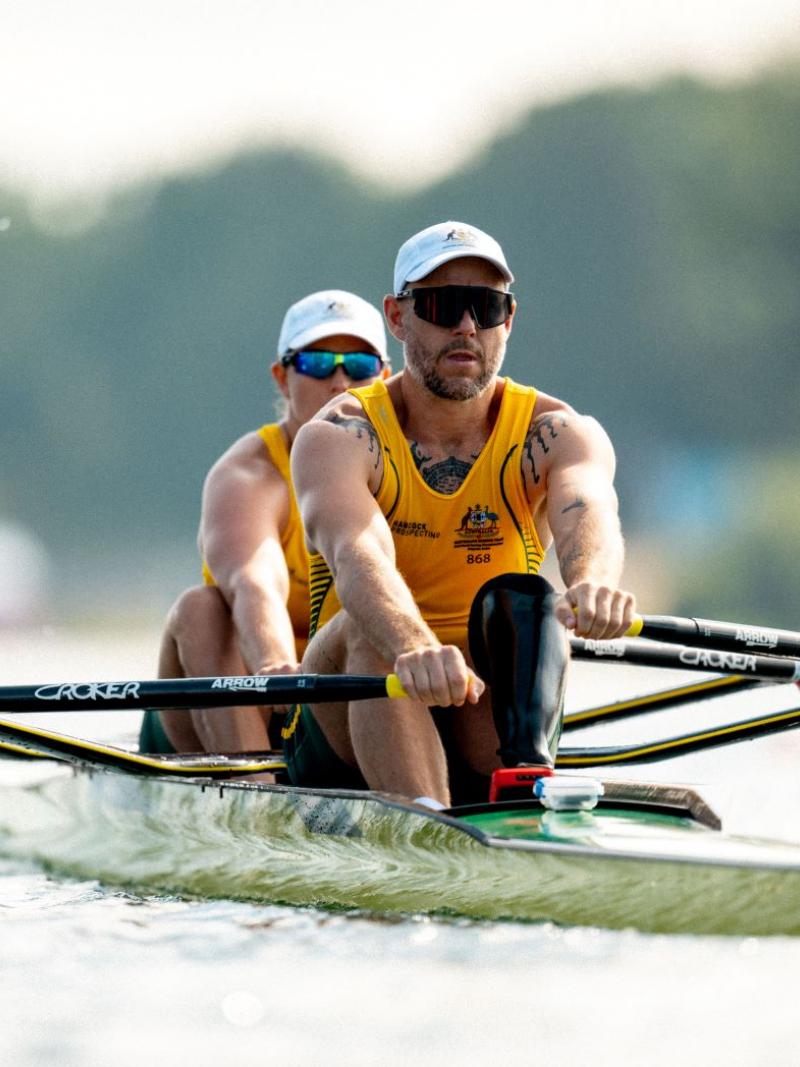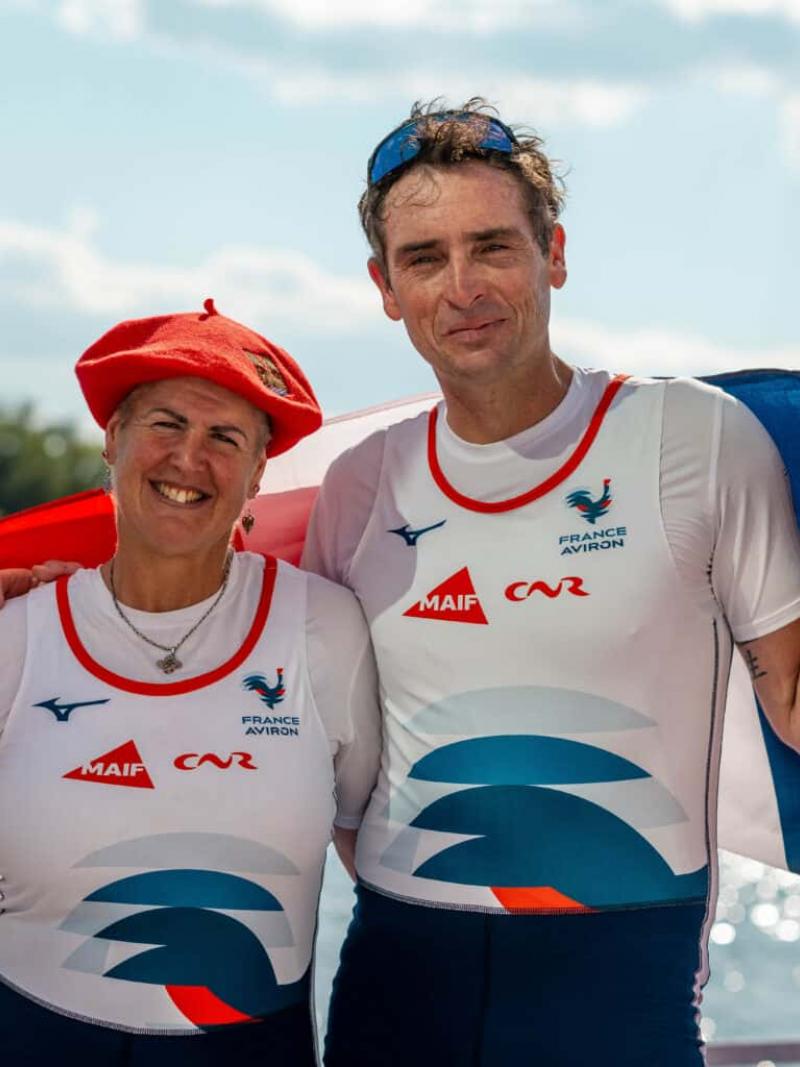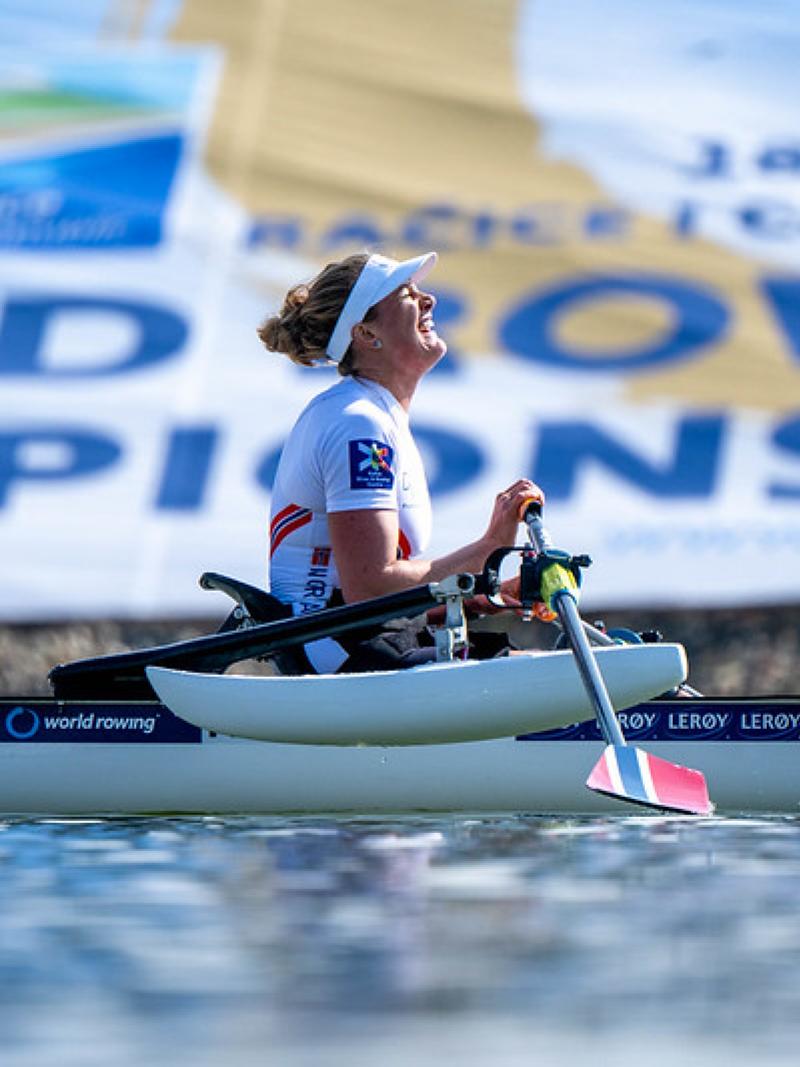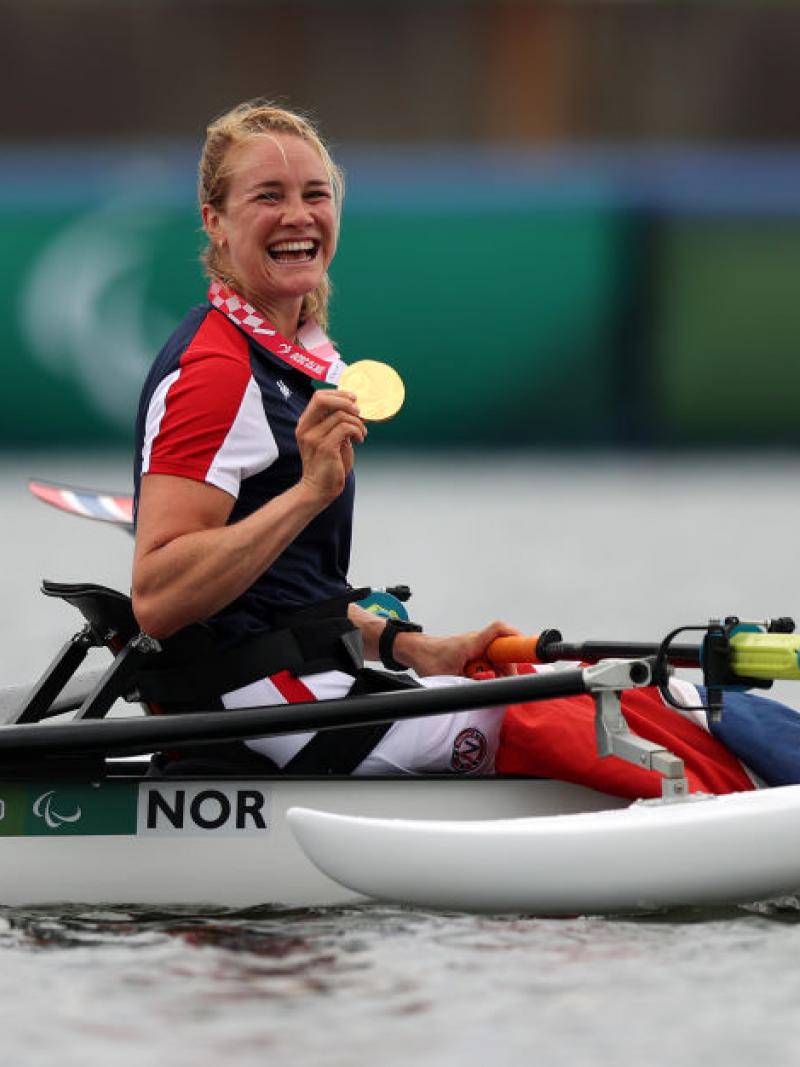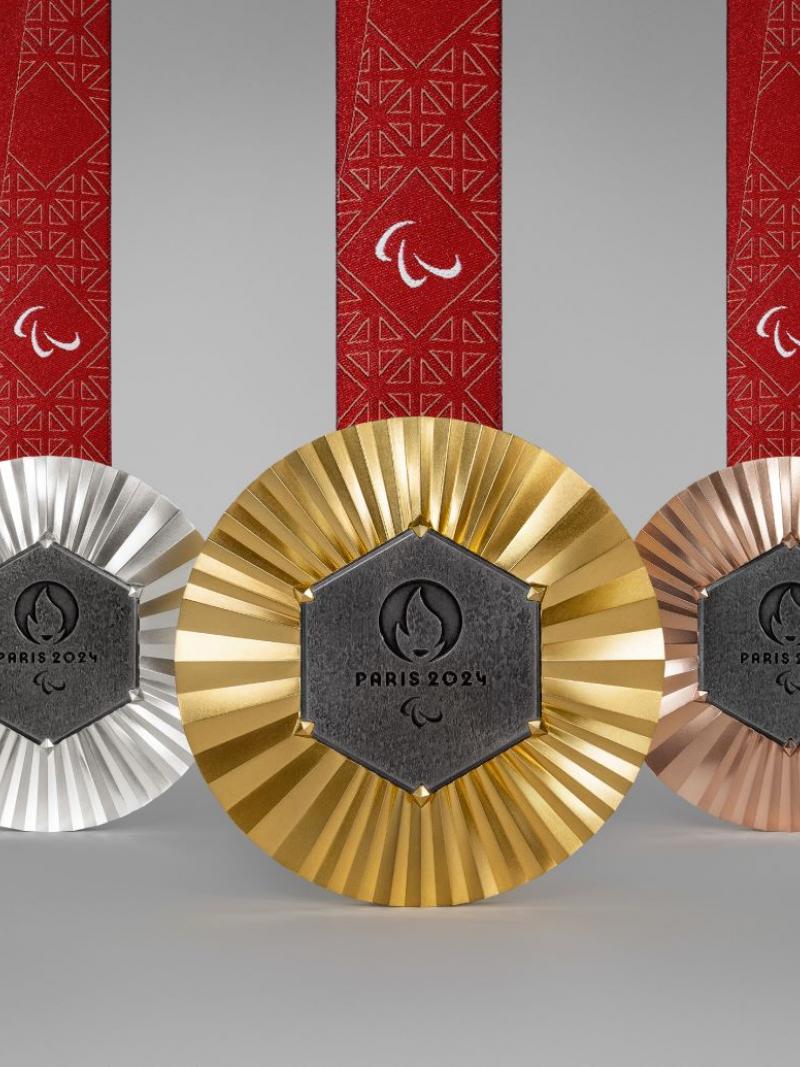Paris 2024: Birgit Skarstein going for more than gold
Paralympic rowing champion wants to ‘make a difference’ as she prepares for title defence 16 May 2024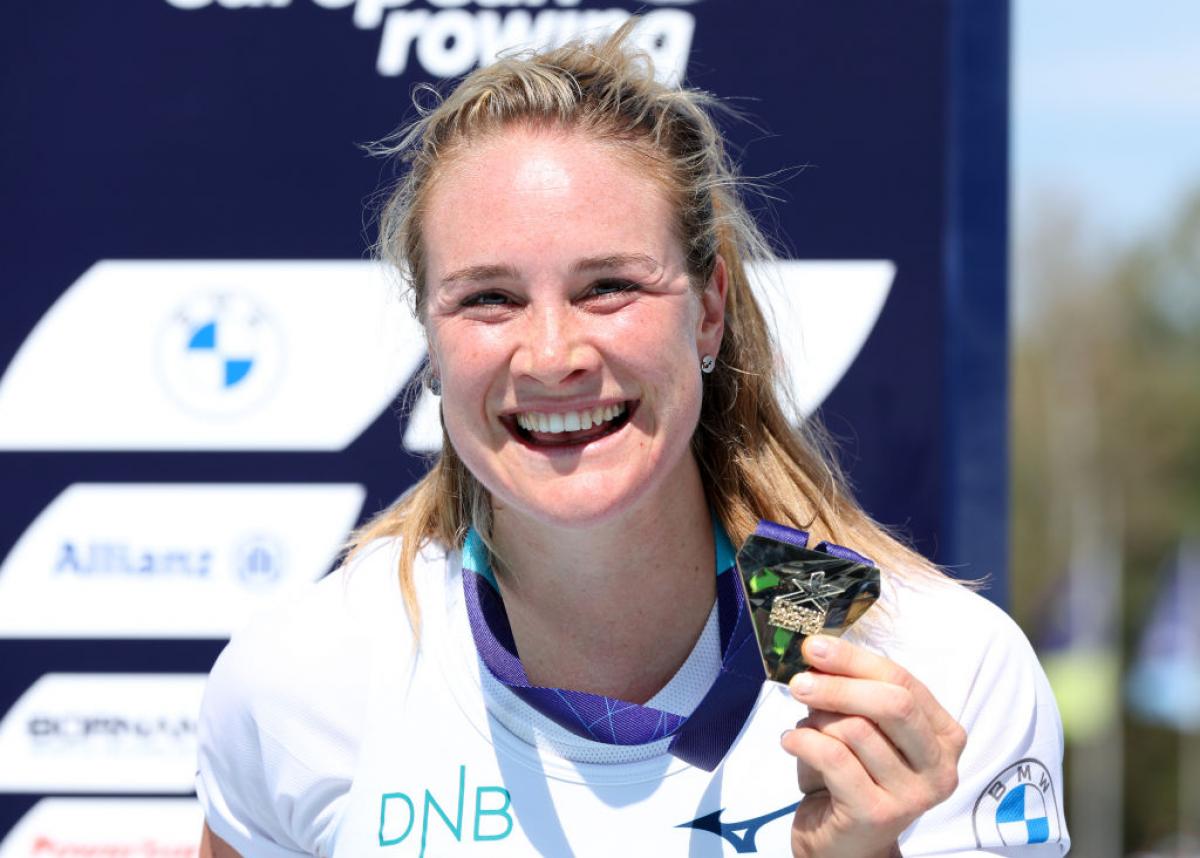
Between gruelling training sessions ahead of the Paris 2024 Paralympic Games, Norway’s Birgit Skarstein is currently writing her autobiography, but the contents would not look out of place in a Hollywood movie.
World Cup winning cross-country skier, Paralympic rowing champion, reality TV star, activist, ambassador, administrator, role model, social agitator – it’s hard to know where to start with her.
She was also recently named a Young Global Leader by the World Economic Forum for being a worldclass athlete as well as a prominent global advocate for the value of an inclusive society and opportunities for persons with disability.
But it is fair to say that being paralysed from the waist down following complications from a medical procedure in December 2008 has given her a uniquely philosophical approach to life.
“We have a limited amount of time in this world, and I want to make a difference,” she said. “I’ve experienced some real pain in my life, and I was unfortunate enough to become paraplegic…
“I’ve been afraid to die – and that gives you perspective and an extreme reference point. When the doctor asks you: ‘how much does this hurt from 1 to 10?’, those experiences make other things seems less painful.
“I feel a genuine and calm happiness and gratitude to be here at all, and that affects my view on life. It also makes me aware of the strength within me, and I know I can handle extreme things.
"I know how to push myself, how to be in pain, how to feel like you’re climbing a never-ending mountain, and you don’t know when you’re going to reach the top. But still, you keep going … and enjoy the ride.”
From politics to the Paralympics
Growing up, Skarstein was very active but professional sport was not on the radar. “I did swimming and track and field, and played lacrosse,” she said. “But when I got the injury, I was studying political science at university and was definitely not aiming for any medals in life.
“In the hospital, though, the doctors told me: ‘you’re 20 years old, you’re very fit, you can do well in sports.’ But I thought ‘no, I just want to get back to my life’.
“I still trained for three hours a day because I figured the key to getting my freedom and independence back was to be healthy. Life expectancy was 84 for women in Norway at the time, and I realised that if my arms were going to carry my body, like my legs had been doing, for the rest of my life – 64 years – they better be fit and strong and not have too many injures.
“In 2011, I did this reality TV show called Beyond Boundaries, which was huge in Norway, where 11 people with different disabilities travelled 600 kilometres through the forest, paddling and rowing and riding horses, then we climbed a mountain.
“At one point I was so exhausted, I fainted, blacked out. It was kind of what you do in elite sport; push yourself to the limit, physically and mentally. Being able to discover your borders, your capacities is painful but it’s also healthy because you get to know what you’re capable of, which for most people is more than you think.”
It was not until 2012, though, that Skarstein caught the competitive bug. “I was in London with the Norwegian government, working part-time for the Federation of Sport and the Olympic and Paralympic Committee on inclusivity. What I saw at the track and field stadium from the athletes was breathtaking, mind-blowing, and I completely fell in love with it.
“The way London showed up for the Games was amazing. And it was full – sold out, the crowds were tremendous. I understood with my heart that what these people were doing was changing society. I also realised that Paralympic sport is very difficult and that tempted me, because it’s a challenge.”
In 2014, Skarstein won her first Para rowing world title as well as competing in her first Winter Paralympics as a cross-country skier.
By Rio 2016, she was among the favourites for the single skulls but finished just outside the medals.
“I went too hard at the beginning of the final,” she recalled. “I either win this, or I don’t care – that’s where my head was in my rowing career – either make it or break it. And I broke it. Sitting there watching that medal ceremony, I thought ‘fourth place, never again. I will win in Tokyo, no matter what it costs’.”
“I was obsessed. I don’t think it’s healthy, to be honest. Everything I did was in the schedule. I even had a fiancé for four years and it was in the XL spreadsheet when I could see him. Yes, it was worth it, but remember I’m saying this with that gold medal in my hand.”
Golden dresses and gold medals
Appearing on 2020’s Skal vi danse, the Norwegian version of the globally popular celebrity dancing competition, certainly was not part of the plan, but the experience would be life changing.
Not only would Skarstein make it to week eight, wowing audiences with daring routines that included choreography like doing a handstand on her wheelchair, but she also found the requisite physical and mental qualities of dancing and elite sport complimented each other.
Then there was the social impact, as her performances went viral and her fame soared.
“A lot of people came up to me saying they had a different perspective on what was possible, and so many parents sent me pictures and videos of their kids playing in a wheelchair.
“Suddenly having a disability was cool. They would see me as the princess in the golden dress, not the girl in the wheelchair.
“In a way, I was disappointed I didn’t win it, but my coach was very happy because he wanted me back in training and was a little bit scared of me getting injured before Tokyo! For 12 weeks I was doing two or three sessions of rowing, skiing or weightlifting, then dancing in the afternoon – it was intense.”
So, which is the most gruelling: rowing, cross-country skiing or ballroom dancing?
“Rowing,” she said, without hesitation. “You need power, endurance, mental strength, balance. And you operate with so much lactic acid in training that you throw up, swallow the puke, and go again. It’s really tough, but that’s why I like it. Rowing is my biggest love; I hope I can do it for the rest of my life.”
Skarstein has even stopped skiing competitively so she can focus on defending her single sculls title in Paris, where she will be cheered on by nearly 500 friends and family in what will be her last Games.
You would not bet against a Hollywood ending, but then what – a blockbuster sequel … as prime minister of Norway? “Hahaha. No. Being in the final is very good preparation for anything … almost anything.”






